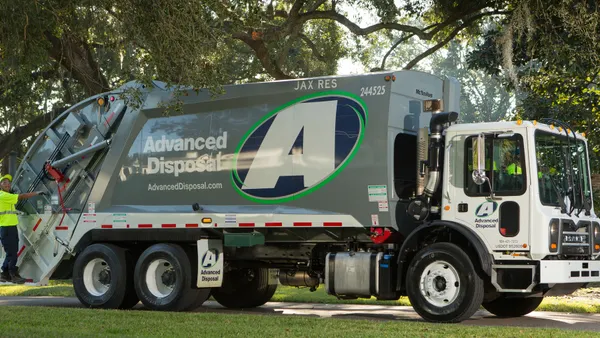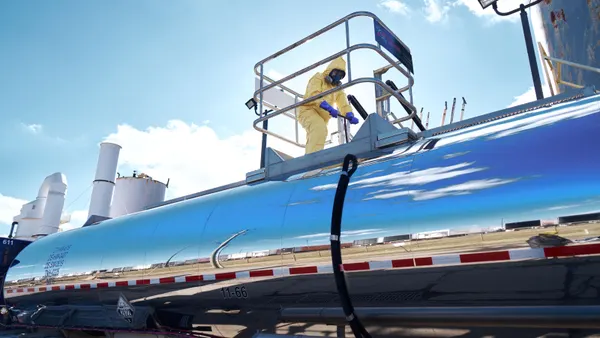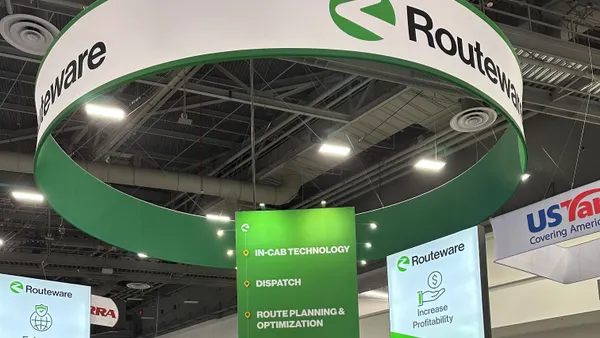UPDATE: Nov. 26, 2018: Brookhaven has announced its decision to revert to dual-stream recycling starting Nov. 28, 2018, just five years after significantly investing in a single-stream system. The decision to discontinue the program comes after Green Stream Recycling — which has struggled to find markets in the wake of China's import ban — pulled out of a 25-year contract last month to run the town's recycling processing facility.
Brookhaven officials have not provided a cost estimate for the shift, but note that some tumult is anticipated as residents re-learn old recycling habits. Smithtown, Huntington and Southold, which all used the facility, will also shift back to dual-stream, according to CBS New York.
Dive Brief:
- Leaders in Brookhaven, New York said they are exploring additional recycling options before awarding a new operator a contract to run the town's municipally-owned MRF, according to Newsday. The MRF's previous operator, Green Stream Recycling, announced last month that it would stop accepting materials due to financial challenges.
- The town has since begun exploring short-term options to keep the MRF running. A new contractor was expected to be named by now, but leaders reportedly had unspecified issues with the three bids they received.
- Officials have to decide whether to keep the single-stream curbside program implemented in 2013 or shift to dual-stream. They hope to reach a contract decision before Thanksgiving.
Dive Insight:
Green Stream's abrupt closure caught some in the industry by surprise, in part because of its backing from top executives at Winters Bros. Waste Systems and Omni Recycling. While Green Stream had agreed to a 25-year contract, it now says the obligation to pay Brookhaven $20 per ton and cover all plant operations costs is no longer viable. As of last month, the company was said to owe Brookhaven an estimated $1.7 million that may or not be repaid.
The market changes that contributed to Green Stream Recycling's struggles come at an awkward time for Brookhaven. Just five years ago, the town invested substantial resources in upgrading infrastructure and educating residents on the benefits of a single-stream program. The changes led to a notable increase in residential recycling program participation, but the town is now at risk of losing that momentum with further alterations to the program.
The MRF operator loss doesn't just affect Brookhaven: its facility also handles recyclables from a number of nearby municipalities in New York and Connecticut, several of which are looking for new recycling vendors and exploring a potential switch back to dual-stream.
This type of problem isn't isolated to the greater New York area, either. A number of municipalities throughout the country are eliminating items from single-stream collection or considering discontinuing their single-stream programs altogether due to friction with haulers and MRFs. O'Fallon, Missouri, for instance, is making the switch to dual-stream to save its recycling program, similar to Lake Worth, Florida's move earlier this year.
Part of the problem is that while single-stream programs are far more convenient for residents and boost recycling rates, they also foster higher material contamination rates — a trade-off that's increasingly costly as China's import restrictions bring renewed focus on reducing contamination to improve material marketability. With haulers and processors across the country feeling the economic pinch — and small municipalities typically having fewer viable, financially sustainable recycling options — many similar recycling program shifts could occur in the coming months.











